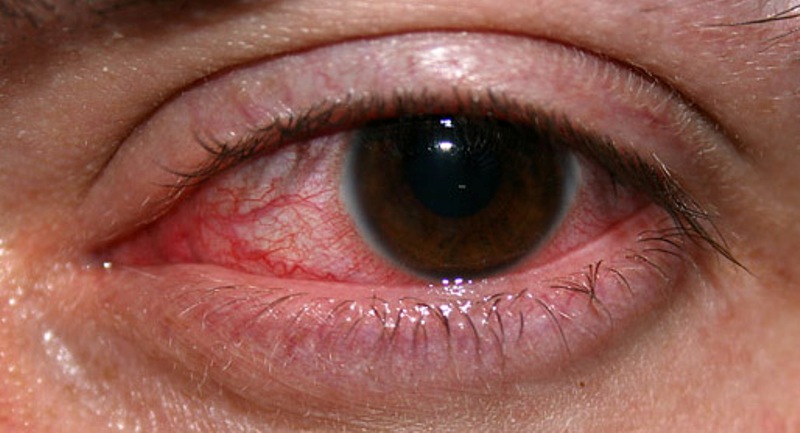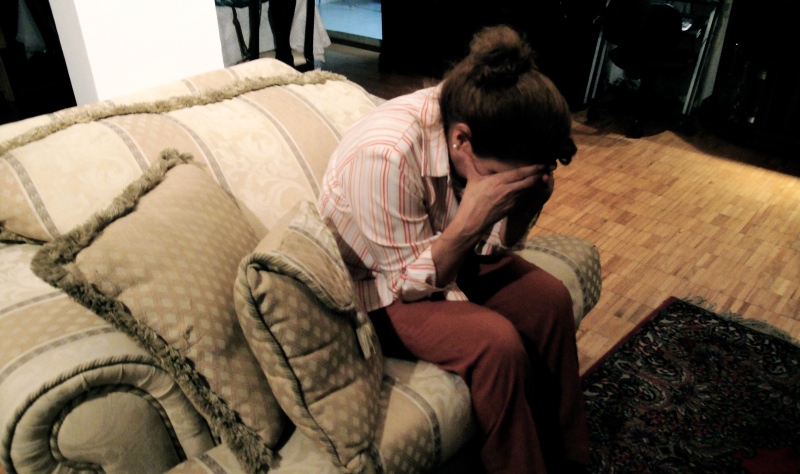Whether your nine-year old marriage has come crumbling down or that two-month old ‘casual affair’ has crashed, that pounding headache, the extreme fatigue, and those swollen bags of black under your eyes will keep you company in the pain that bombards you as you wrack your brains about what to do with your bleeding heart!
Image source: Flickr
No, I am not waxing lyrical – my friend, Science, backs me up. Research has shown that our body responds to a breakup in much the same way that our hearts make us feel – like wretched misery (well, can’t blame me for the metaphorical interjections)!
Suggested read: Marriage is more beneficial to men than women, says study
Here are the ways in which our body says, “Dear Heart, you aren’t alone in the suffering”:
1. The longing for your ex is a REAL physiological craving
Image source: Pixabay, under Creative Commons License
A 2010 study published in the Journal of Neurophysiology found that when people are shown pictures of their exes, activity is induced in the part of the brain that also registers physical pain. Likewise, a 2011 study by researchers at Columbia University showed that when you are going through a breakup and feel like you are missing your significant other, it really is a craving:
“The areas in the brain that become active are the same ones that kick in when cocaine addicts are experiencing physical pain and withdrawal.”
Time to snuggle with Tylenol, eh?
2. The depression, anxiety, sleeplessness, and withdrawal are all coping mechanisms
Image source: Google, copyright-free image under Creative Commons License
The anguish experienced during uncoupling activates the part of brain stimulated during addiction. This, then, leads to withdrawal symptoms causing irritation and bouts of anger. Depression and anxiety kick in which, subsequently, lead to insomnia. Psychologist Dr Susan Quilliam says the anguish of a break up brings back deep-seated memories from childhood that everyone holds – even without knowing it. She told MailOnline:
“Human babies cannot survive on their own. They might die of lack of warmth or food. A human is programmed to need human contact, and to be affected when human contact is withdrawn. We are programmed to suffer when we are abandoned, so we don’t lose our mothers, so we are cared for. But at some point everyone in childhood thinks ‘oh my god I’m alone I’m going to die.’ So a break up revokes those emotions and makes us feel insecure, angry, and sad. They go through the bereavement cycle, typically shock, denial, grief, anger, blame, self-blame, helplessness, fear of the future, depression, and then acceptance. When they relive conversations and the breakup in their mind, depression and anxiety worsen. Remembering the reasons for the breakup, and trying to remember why it is a good idea can help prevent sinking into depression. It can be the kick up the bum that leads you to learn how to love. And remembering an old Japanese saying is particularly helpful. They say the Japanese Kitsuki bowl is the most beautiful bowl. But if it is broken and melded with gold it is even more beautiful. Just as a person can be more beautiful if they have suffered a breakup and have had to put themselves back together again.”
3. Stress keeps you constant company
Image source: Google, copyright-free image under Creative Commons License
The body’s immediate reaction to a breakup is a fight-or-flight response that causes the body to release massive amounts of the stress hormones adrenaline and cortisol in reaction to the heartache. This causes sore, swollen muscles (caused by the cortisol building up but your muscles not actually springing into action more than normal afterwards) and an increased heart rate (caused by both adrenaline and cortisol).
4. The puffy eyes are caused by ‘emotional tears’ tearing you apart
Image source: Google, copyright-free image under Creative Commons License
Science has shown that we cry ‘different’ tears for different situations. While basal tears are released to keep the eyes moist, and reflex tears are released in response to irritants, such as when a person chops onions, tears associated with emotional crying are called ‘psychic’ tears and are produced by the lachrymal gland, located in the upper corner of the eyelids. As such, the salty tears while spilling down, drain down through the tiny ducts at the back of the nose cause a swelling due to osmosis. This causes them to become swelly and puffy. Wiping them off may also make the eyes red and sore.
5. Your digestive system slows down
Image source: Google, copyright-free image under Creative Commons License
“Cortisol shooting into your system during your breakup diverts blood away from your digestive tract, leaving you with GI [gastrointestinal] unpleasantness,” explains MSNBC’s Jennifer Nelson.
A 1994 study also evinces that stress can affect the distribution of fat, since cortisol promotes the settling of fat particularly in your abdominal region. Great, now you know that binge-eating isn’t the only culprit – so bring on another ice cream tub!
6. Your skin is more prone to breakouts
Image source: Google, copyright-free image under Creative Commons License
The dissolution of a romantic relationship and the subsequent release of cortisol in the body can cause acne. So, yep, cry your eyes out and maybe, pop those pimples too!
Suggested read: 8 stunning scientific ways in which marriage correlates to happiness
7. Your blood pressure shoots through the roof
Image source: Google, copyright-free image under Creative Commons License
The American Heart Association confirms that this isn’t really a major thing to worry about as “blood pressure may increase temporarily when you’re stressed; stress has not been proven to cause chronic high blood pressure.” But for people with already high blood pressure, a short-term fluctuation can push them to hypertensive crisis, a condition that may cause severely high blood pressure and symptoms like headaches, shortness of breath, and even nosebleeds.
8. The broken heart syndrome is a REAL medical thing
Image source: Google, copyright-free image under Creative Commons License
The American Heart Association confirms that during a breakup “a part of your heart temporarily enlarges and doesn’t pump well, while the rest of your heart functions normally or with even more forceful contractions,” which “can lead to severe, short-term heart muscle failure.” This condition is technically called stress-induced cardiomyopathy, commonly referred to as ‘broken heart syndrome.’ More likely to affect females, with women making for 80% of the cases, guess the songs you were plugged in to all day, all night long really meant THIS!
So, the next time you are on the other end of a call for a buddy who is talking of heartbreak, don’t for a moment assume they’re exaggerating the pain!
Featured image source: Google, copyright-free image under Creative Commons License




















